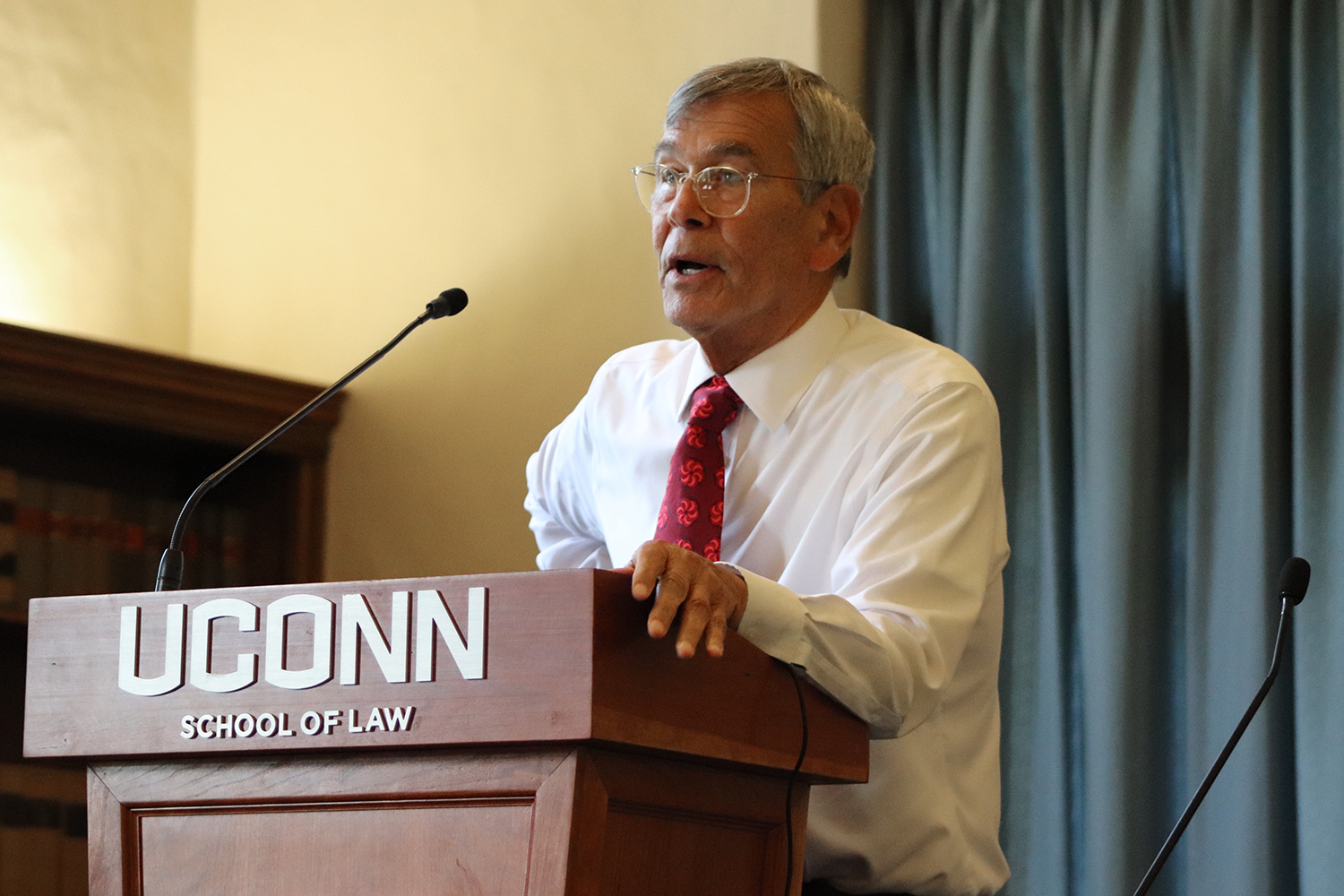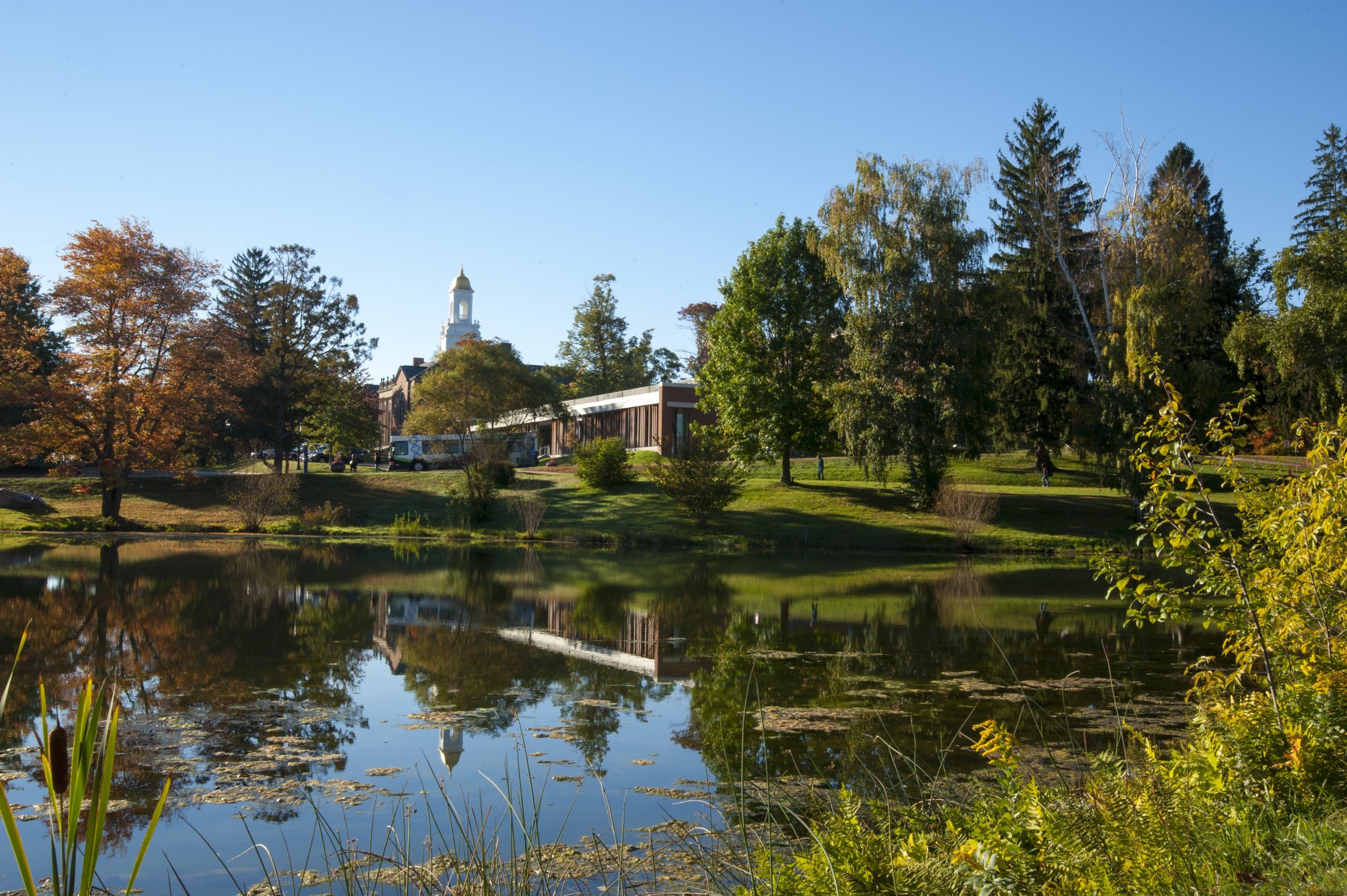Scholars from around the world gathered at the UConn School of Law to celebrate Professor Richard Kay and his body of work in constitutional law on Friday, September 13, 2019.
The conference, entitled “Original Constitutionalist: Reconstructing Richard Kay’s Scholarship,” explored Kay’s extensive works in constitutional interpretation and comparative constitutional law, including his book “The Glorious Revolution and the Continuity of Law,” a historical study of the relationship between revolution and legality
Richard KayThe conference was organized by Dr. Yaniv Roznai, a senior lecturer at the Radzyner School of Law Interdisciplinary Center Herzliya in Israel, who had studied Kay’s writing and corresponded with him extensively but did not meet him until 2018. Hearing that Kay had retired, he felt a “festschrift,” or tribute, was in order.
“I thought it could be a way to give back, just a little bit, and pay tribute to one of the giants in our field,” Roznai said. He also noted Kay’s kindness in reviewing the work that Roznai sent him over the years. “Notwithstanding me being a junior scholar in the early stages of my career, he happily read and commentated on the working papers I sent him, and his ideas and remarks were very helpful and thoughtful.”
The four panels included scholars from around the United States and five other countries: Australia, Canada, Israel, New Zealand and the United Kingdom. The panels covered “Originalism, Construction and Intent,” “Rules of Recognition, Constitutional Chronometry and Interpretation,” “Constituent Power and Constitutional Change,” and “Religion, Equality and Change.”
At the end of the day-long event, Kay thanked the audience and panelists, and remarked on the caliber of intelligent thought presented at the symposium. “It would almost make you weep, the intelligence and insight that our speakers have shown,” he said.
“The process of scholarship to me has been like writing notes, and then putting them in a bottle and sealing the bottle and tossing it over the side into the sea, in the hope, usually the vain hope, that someone somewhere will find that bottle, open it up and read what I said,” Kay told the audience.
He thanked those in attendance for “noticing those bottles on the beach, picking them up and taking a look.” The conference, he said, “is certainly the most satisfying moment in my long professional life.”
Kay, the Wallace Stevens Professor of Law Emeritus, joined the UConn School of Law faculty in 1974. He hold an AB from Brandeis University, an MA in economics from Yale University and a JD from Harvard Law School, where he was editor of the Harvard Law Review.



